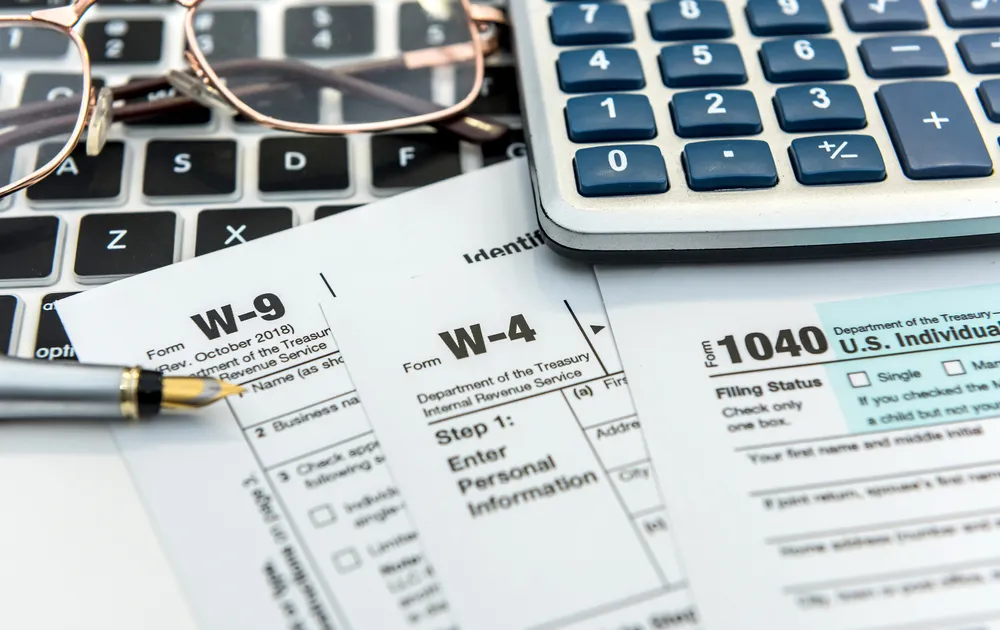As the calendar flips to a new year, tax season looms on the horizon. It’s a time that can be overwhelming, but preparation is half the battle. With W-2s and other tax documents about to arrive, it’s the ideal moment to start getting everything in order. A little preparation now can make tax season far more manageable.
 Shutterstock: RomanR
Shutterstock: RomanRStart a Tax-Dedicated Folder
The first step to organizing your tax paperwork is creating a dedicated folder. This can be physical, digital, or both. Make it easily accessible so you can quickly add documents as they arrive, helping you get organized. Labeling the folder explicitly for taxes will help keep it from becoming cluttered with unrelated paperwork.
Create a Checklist of Needed Documents
Knowing exactly what documents you need will save time and unnecessary stress. Compile a list of required forms, such as W-2s and various 1099s. Don’t forget other necessary documents like mortgage interest statements or student loan interest forms. Keeping the checklist updated will help you know if you haven’t received any forms you were expecting.
Sort and Categorize Receipts
Sorting receipts may feel like a tedious task but it will significantly pay off during tax filing. Start categorizing them by expense type or date. This will make it simpler to identify deductible expenses. Use envelopes or digital folders to keep the receipts together and easy to access.
Organize Financial Records
Financial records are the backbone of your tax filings, so keeping them orderly is crucial. Regularly update spreadsheets or accounting apps. Ensure bank and credit card statements are in order and accurate. This organization will provide a clear picture of your financial situation, easing the tax filing process.
Don’t Overlook Deductions and Credits
Deductions and credits can greatly reduce your tax burden. Make a list of those relevant to your situation at the beginning of the season. Keep documentation accessible for any donations, energy-saving home improvements, or education expenses. Staying aware of deductions and credits you qualify for can lead to savings.
Secure Sensitive Information
With tax documents comes sensitive information that needs protection. Ensure that all files, digital or hard copy, are kept secure. Consider digitizing paper documents and storing them in encrypted folders. Strong passwords and secure storage prevent unauthorized access and potential identity theft.
Use Tax Software
Tax software can be a lifesaver. Many programs allow you to begin entering information as soon as you receive documents. The software keeps data organized and can streamline multiple submissions. Look for apps that integrate with your financial accounts for real-time updates.
Seek Professional Help If Needed
Sometimes, a professional eye is invaluable for organizing and optimizing your tax filing. Consider hiring a tax consultant if your situation is complex or overwhelming. Often, they can identify overlooked deductions or areas for savings. A professional can also ensure you’re complying with all tax laws, reducing stress and potential penalties.
Make Organization a Habit
Finally, integrate organization into your yearly tax routine to avoid stress in the future. Set reminders to update financial documents monthly. File important papers immediately to prevent them from piling up. Consistent organization can support an effortless tax season for years to come.
The Path to a Painless Tax Season
You don’t have to scramble come tax season! Efficient organization lays the groundwork for handling the complexities of doing your taxes. Whether by creating dedicated folders, using software, or enlisting professional help, these strategies offer a road map to stress-free tax filing. Starting early sets a solid foundation and removes the sense of urgency as deadlines approach.


